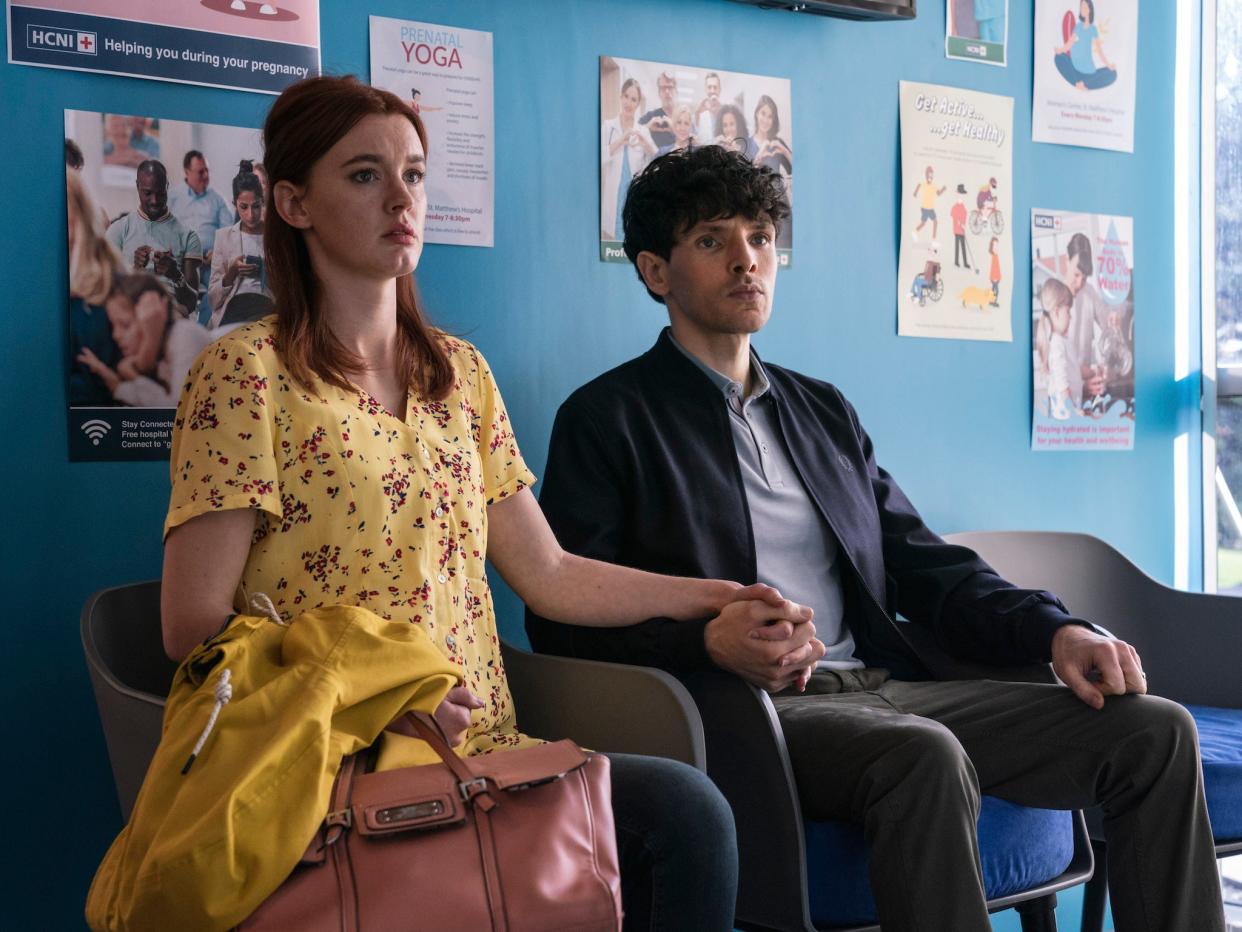Three Families review: A sensitive, enraging expose of Northern Ireland’s anti-abortion laws

Amy James Kelly and Colin Morgan star as Hannah and Jonathan
(BBC/Studio Lambert/Peter Marley)Three Families is not very interested in heroes or villains. In this sensitive, enraging two-part drama, the closest thing to the latter is Northern Ireland’s archaic anti-abortion law – a law that remained until 2019 and did irreparable damage to many thousands of women. Three of them directly inspired the stories told here.
Orla (Lola Petticrew) is 15. When she discovers she’s pregnant by an abusive boyfriend, her mother Theresa’s first response is to hug her. Her second is to tell her what she herself has been told for her entire life: that abortion is a sin. “That’s so easy to say,” says Orla, “until it happens to you.” Eventually, tentatively, Theresa – played with an unsentimental tenderness by Sinead Keenan – buys Orla pills online that will induce miscarriage. For that, she ends up facing five years in prison.
Meanwhile, young couple Hannah (Amy James-Kelly) and Jonathan (Colin Morgan) are told that their much-wanted baby has thanatophoric dysplasia – that if she isn’t stillborn, she will die within minutes. When Hannah tells her boss of her plans to terminate the pregnancy, she responds with a look of real anguish, and begs her to have mercy. “Mercy?” says Hannah. “You want me to give birth to her and watch her die in agony. How’s that merciful to either of us?” In the end, it’s not her choice to make: she is denied an abortion by her doctor. It sparks a journey towards activism for the quiet, unassuming Hannah.
Three Families tells its stories from a staunchly pro-choice standpoint – as a teenager in 1970s Northern Ireland, the show’s executive producer Susan Hogg saved money “just in case I had to make the dreaded trip across the water to access an abortion” – but this is not an “us versus them” kind of drama. It runs the gamut of perspective and opinion, and writer Gwyneth Hughes’s empathy is not limited to the characters with whom she agrees. She knows that even a woman as brave as Theresa isn’t going to become a pro-choice advocate overnight. And that Theresa’s best friend Louise (Kerri Quinn) – who spends her weekends protesting outside abortion clinics, intimidating and shaming women in their most vulnerable moment – truly believes she is fighting a just cause. (Quinn is anti-abortion herself – which I suppose explains the conviction with which she plays her character).
Theresa and Hannah never meet in the first episode – but there is a profoundly moving shot of the two of them on adjacent benches. Silently watching Theresa’s young son playing in the grass, they are united only in their shared suffering at the hands of their country’s laws.
Three Families is an enlightening, excruciating expose. It favours nuance over shallow polemics, and does justice to women’s stories without reducing them to parables. Unmissable.
Read More
Inside No 9 review: A bewildering and dramatic amuse-bouche
Motherland review: Middle-class parenting comedy doesn’t get better than this


